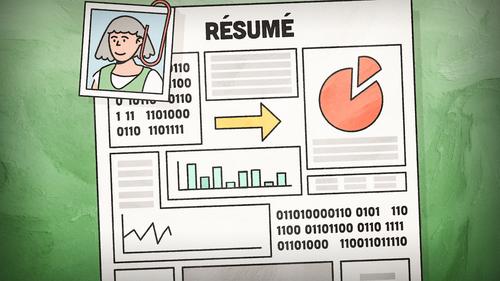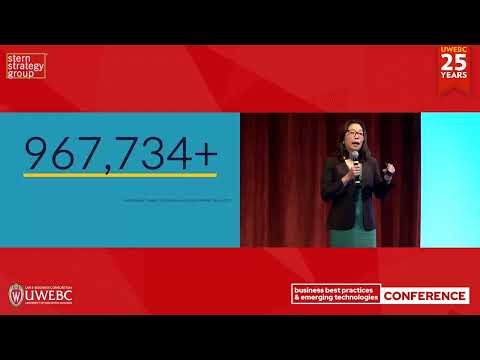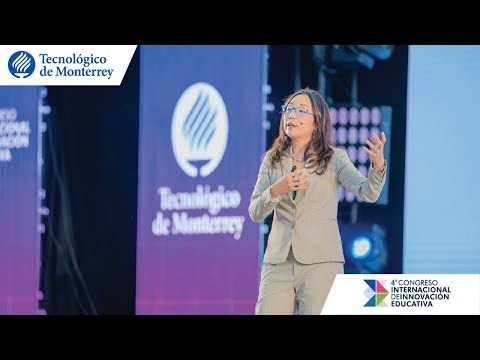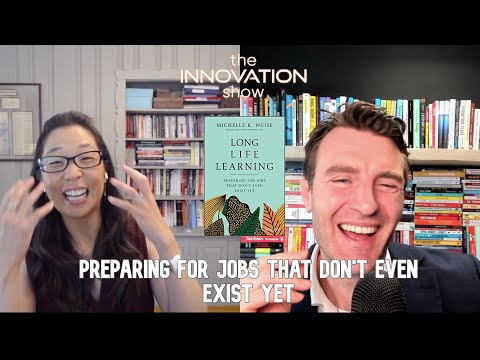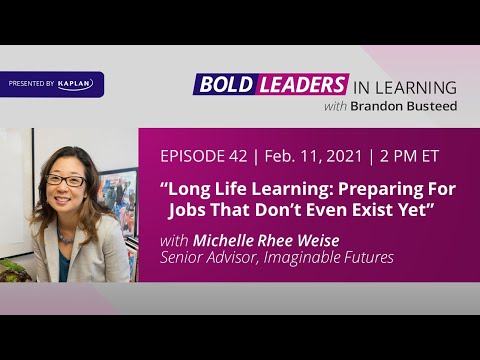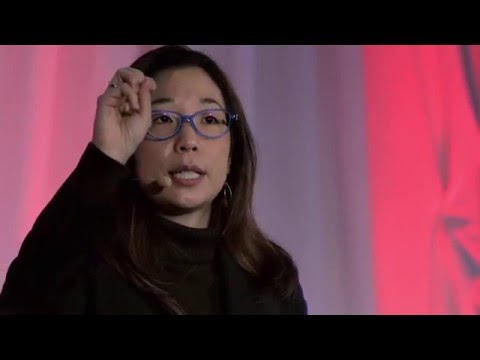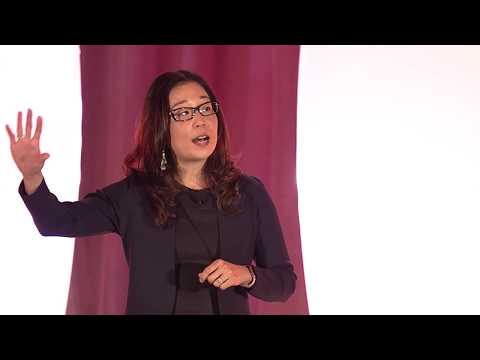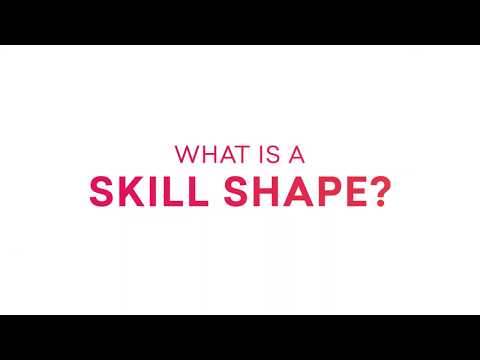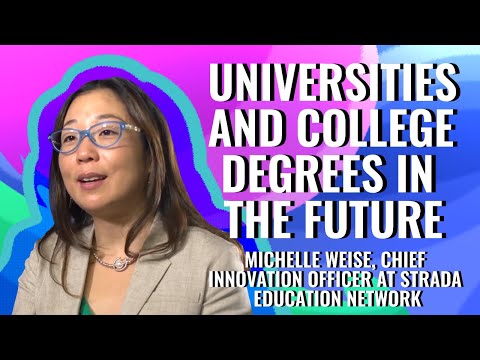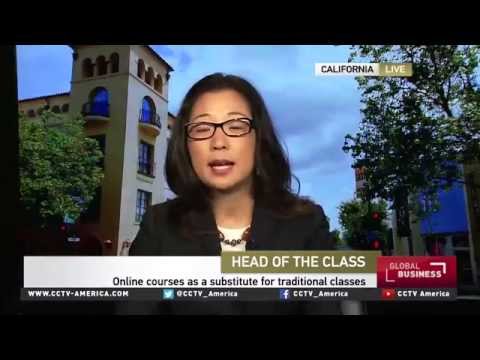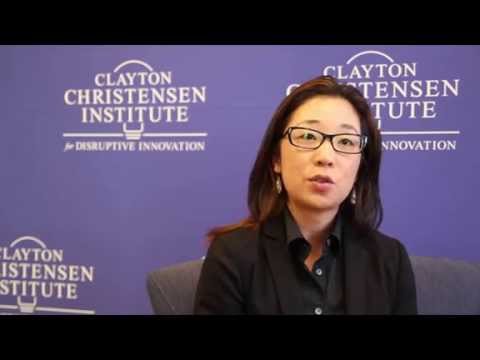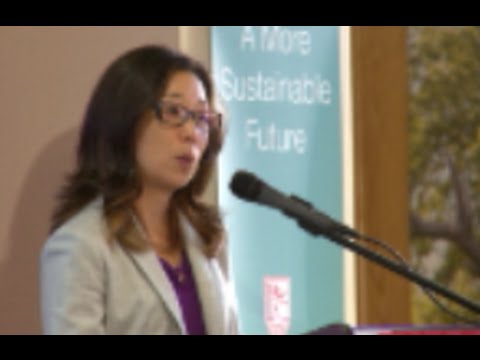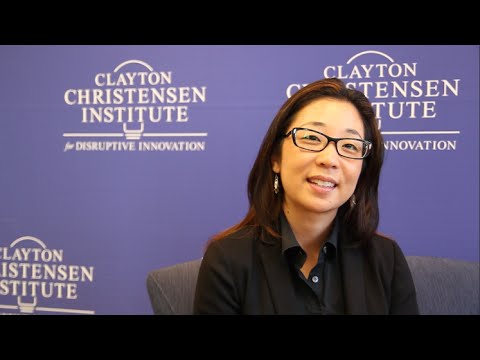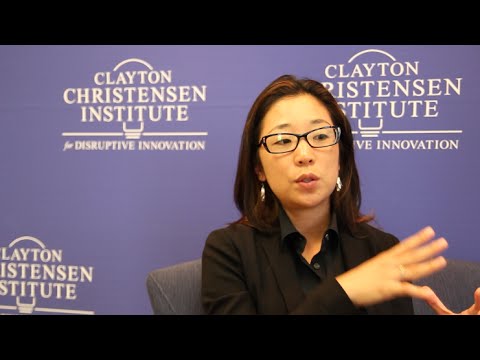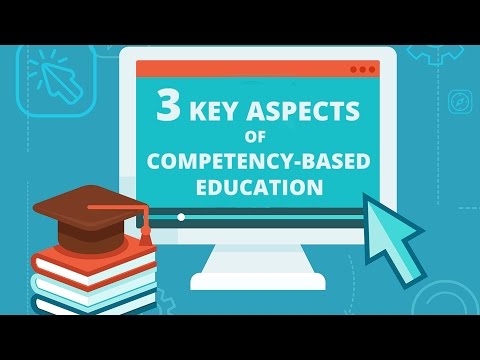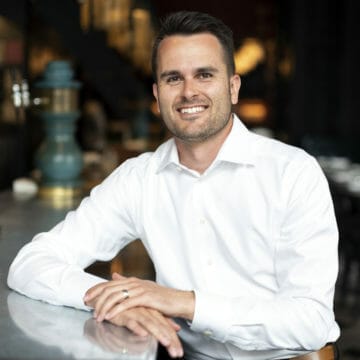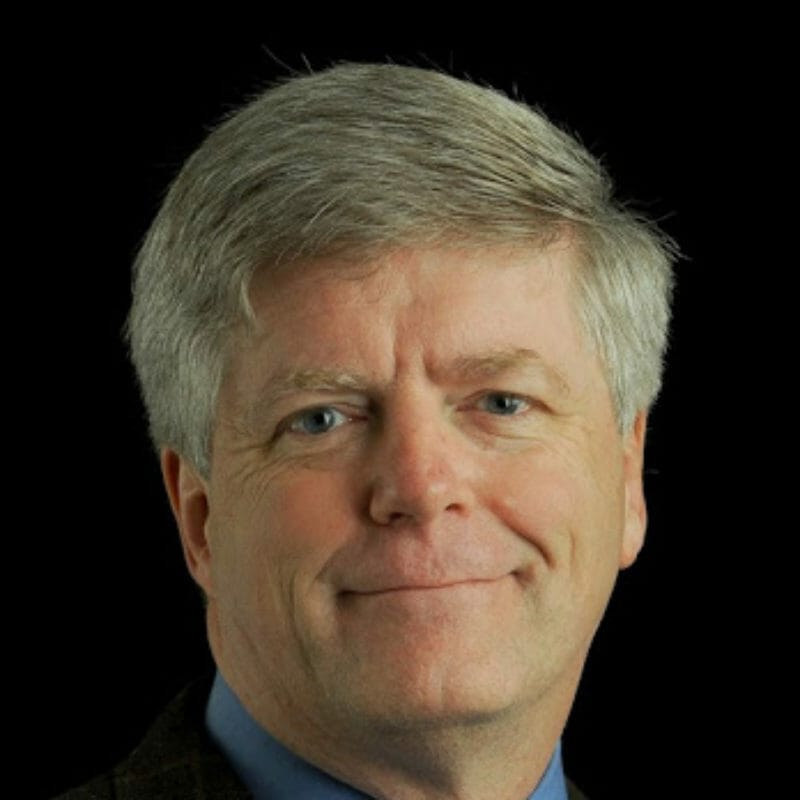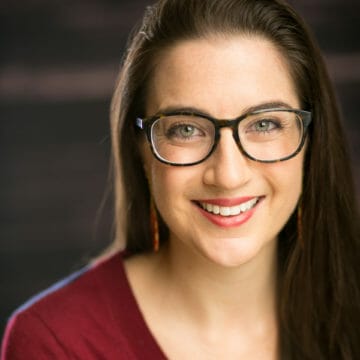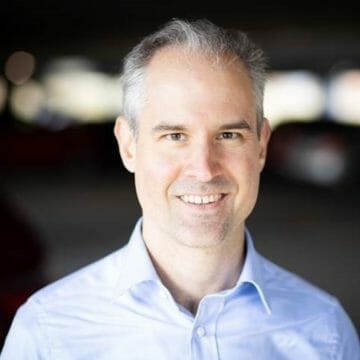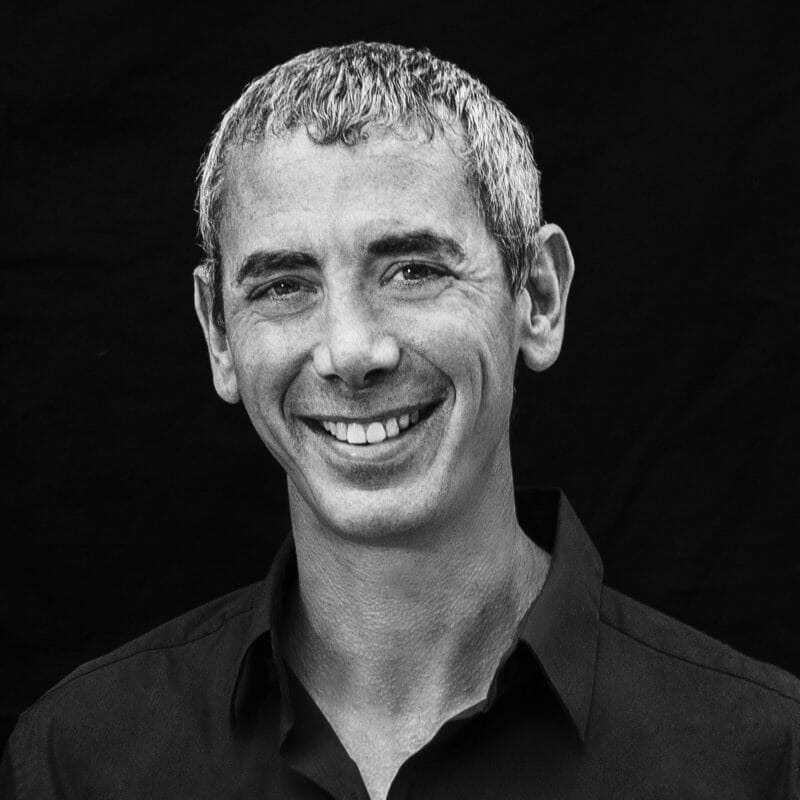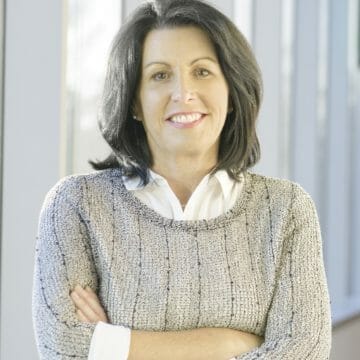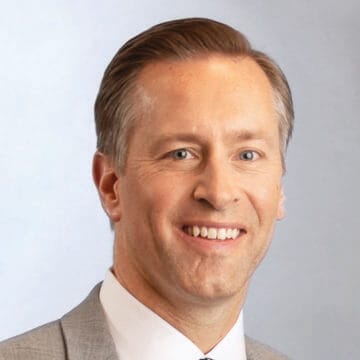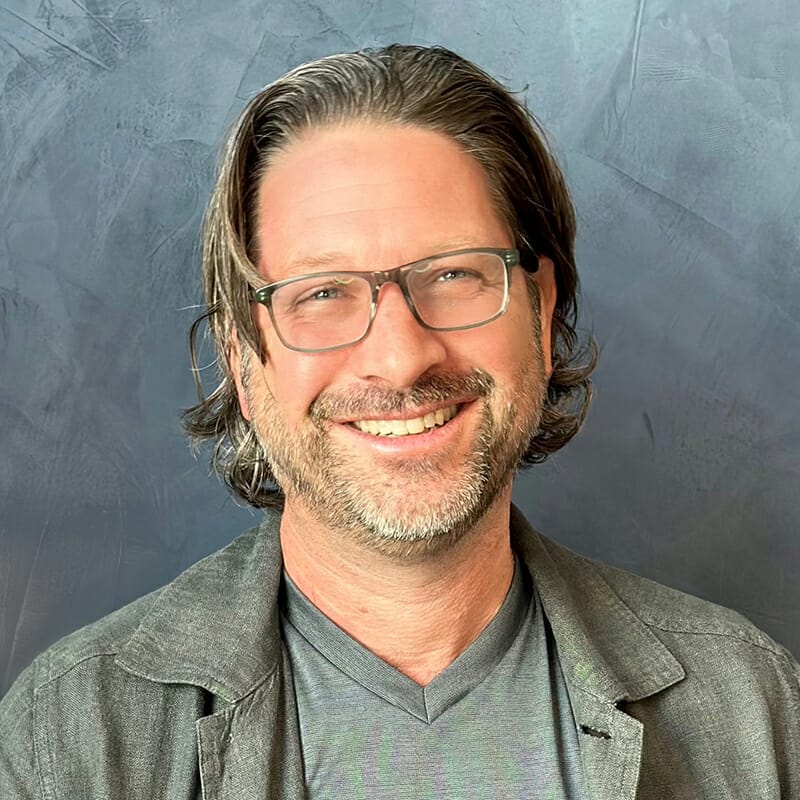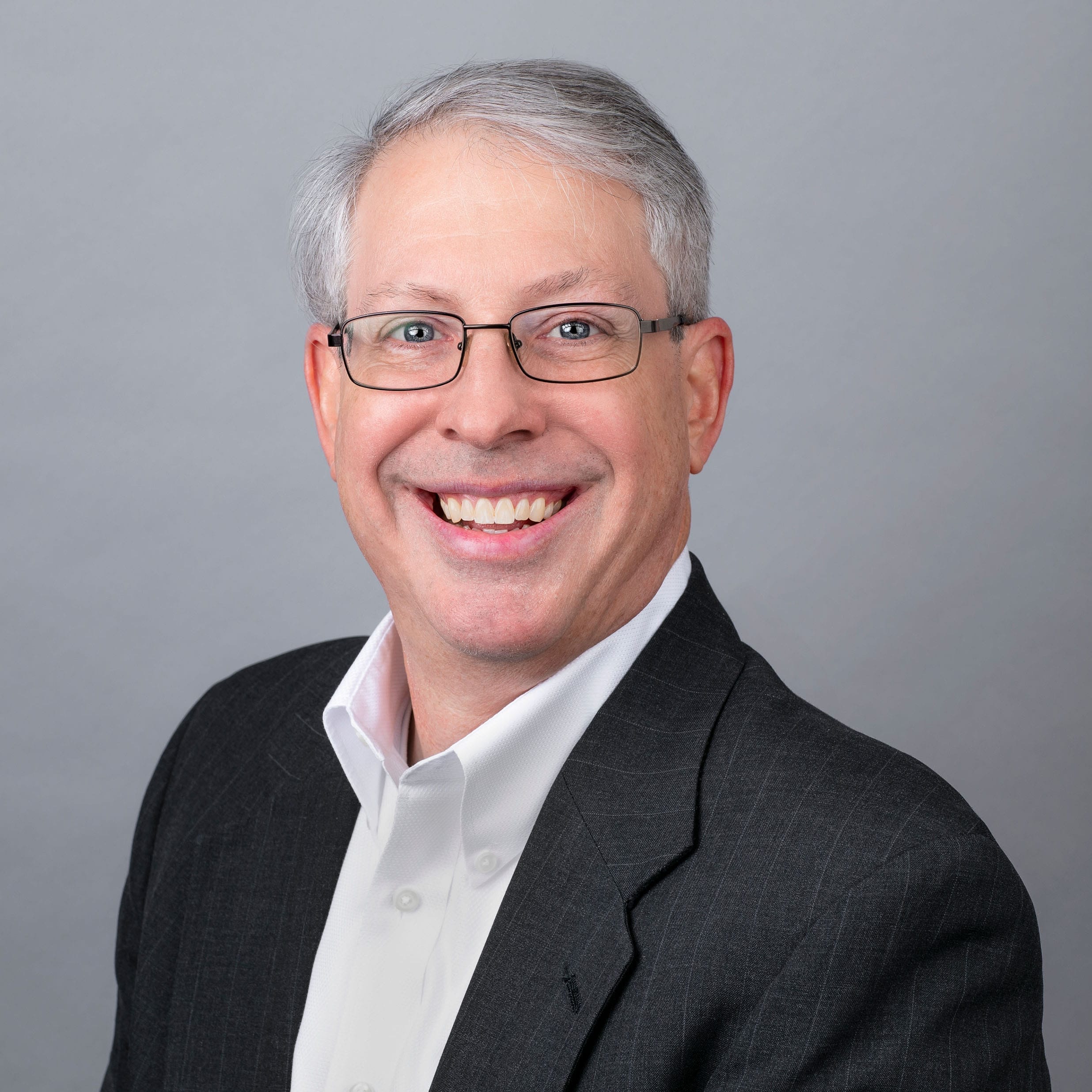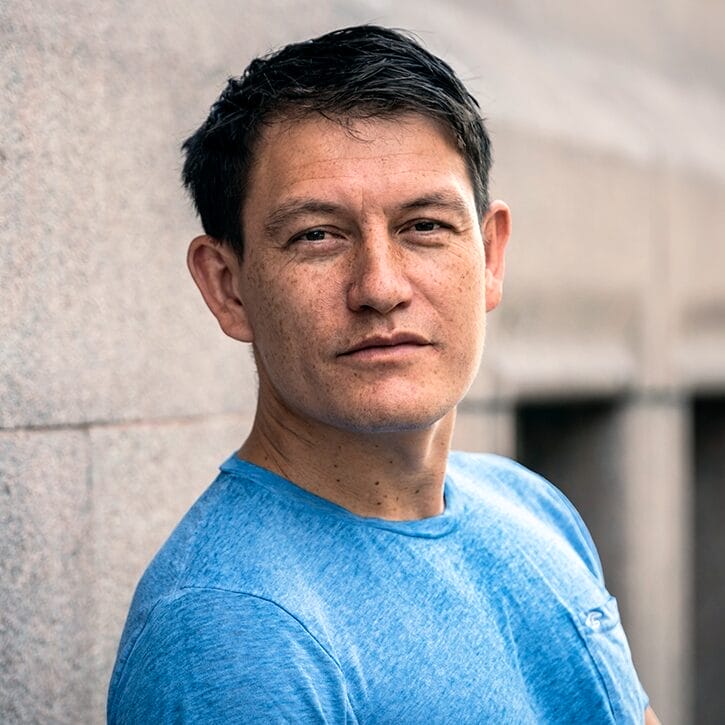Videos
Learn More About Michelle R. Weise
In today’s fast-moving world, businesses are always looking for new ways to unlock their competitive edge. The key, says Michelle Weise, Ph.D., a leading expert on the future of work, is knowing when to build and when to buy talent. Companies have long touted human capital as their greatest asset, but few understand at a granular level the actual skills of each employee in their workforce. Weise is on a mission to change the way executives think about internal mobility and training for the jobs ahead.
“It is vital,” explains Weise, author of the acclaimed book “Long Life Learning: Preparing For Jobs That Don’t Even Exist Yet” (Wiley, 2021), “to develop a skills-based approach to articulating your employees’ unique skills while helping them learn new ones that are most needed in your organization” – a fresh concept that she calls skill shapes, a novel, skills-based and regional approach to understanding real-time labor market demand within cities, states and regions.
“People talk about skills gaps and tend to assume that there is some sort of broad general or national skills gap,” says Weise “But skills gaps are hyper-local. They depend on the region you’re looking at. With this data, you can support the design and calibration of training programs that can close gaps between the supply of and demand for talent.
“Better people analytics – and better ways of visualizing and interacting with that data – will not only help managers and recruiters do a better job of matching people with jobs but will also help companies develop a more accurate picture of their strengths and weaknesses.”
Changing the Conversation from the Future of Work to the Future of Workers
When Weise thinks about the scientific advancements extending human lifespans, her mind immediately considers the impact a longer life could have on workforce education. “We have to prepare students for work that doesn’t exist yet,” emphasizes Weise, “In 2014, LinkedIn’s top ten jobs were jobs that hadn’t existed five years prior: social media intern, iOS/Android developer, cloud manager, big data architect, or UI/UX designer as examples. How many new jobs that don’t exist today will a person have during a 150-year lifespan?”
Both visionary and practical, Weise brings businesses concrete strategies for welcoming a longer career and putting this cultural shift into action, including investing in upskilling and reskilling programs, deploying new skills and labor market analytics, and creating more flexible earn-and-learn arrangements.
Weise helps business leaders understand the change management processes that go along with massive internal, digital transformation efforts. She teaches practical and design-thinking-based frameworks for how organizations can pursue the cultural changes required to “think bigger” about the future. Her workshops focus on organizational design, transparency, and psychological safety—all while keeping teams aligned and in step with one another.
How to Acquire Top Talent: Buy vs. Build
By shining a light on the elements that comprise the talent ecosystem, Weise lays out a clear and easy-to-follow roadmap for building a sustainable, dynamic workforce. She gives companies the insights they need to access a deeper talent pool while simultaneously unlocking the full potential of their people. The result is Weise’s encouragement for organizations to not buy talent but build it instead. With access to internal mobility pathways, workers will find themselves compelled to remain with the company, boosting the organization’s talent retention and transforming a disjointed workforce into a connected community.
“In simplest terms, we must stop thinking of learning and work as separate activities, as if the workplace and the classroom are two distinct virtual or physical spaces,” Weise sums up. “Companies must adopt a whole new mindset: The workplace must become the classroom of the future. It’s time to reimagine on-the-job training as a way for workers to build new skills for emerging and better jobs.”
Previously the chief of strategy and innovation for multiple organizations, such as National University System, Strada Education Network’s Institute for the Future of Work, and Southern New Hampshire University, Weise now advises clients through her company, Rise & Design, as they seek to design education and workforce strategies that will prepare working-age adults for the jobs of today and tomorrow. An expert in disruptive innovation and co-author with the late Clayton Christensen of “Hire Education: Mastery, Modularity and the Workforce Revolution” (2014), Weise advises various funders, multiple for-profit and non-profit startups in edtech and workforce tech, and has also participated on multiple commissions, including Harvard University’s Task Force on Skills and Employability, Massachusetts Governor Charlie Baker’s Commission on Lifelong Learning and Digital Innovation, and the Academy of Arts and Sciences’ Commission on the Future of Undergraduate Education.
Weise elaborates on her methods for developing more innovative workforce and talent pipeline strategies in “Long Life Learning.” Called “an invaluable glimpse into a future that many of us have not even begun to imagine,” it makes the case that learners of the future are going to repeatedly seek out educational opportunities throughout the course of their working lives ― which will no longer have a beginning, middle and end.
With a focus on equity that takes a holistic view of working learners’ potential, she’s shifting the conversation from the future of work to the future of workers. Her advisory work that stems from her award-winning book, includes interactive workshops and engaging keynotes to show leaders and teams how to change the culture of their organization to one that embraces lifelong learning, skill building and job mobility.
Michelle Weise is the founder of Rise & Design. Her voice has been featured in all top-tier business outlets such as The Economist, The Wall Street Journal, Harvard Business Review and Bloomberg BusinessWeek, as well as all major education publications, including The Chronicle of Higher Education, EdSurge and Inside Higher Ed. Thinkers50 named her one of 30 management and leadership thinkers in the world to watch in 2021.
Previously the entrepreneur-in-residence and senior advisor at Imaginable Futures, Weise was also the chief innovation officer at Strada Education Network’s Institute for the Future of Work. Prior to that, she was chief innovation officer at Southern New Hampshire University and designed and led the Sandbox ColLABorative, an innovation lab and research consultancy.
Weise has held several instructional positions, serving as a professor at Skidmore College and an instructor at Stanford University. A former Fulbright Scholar, Weise is a graduate of Harvard University, and earned her master’s and doctorate degrees from Stanford University.
Michelle Weise is available to advise your organization via virtual and in-person consulting meetings, interactive workshops and customized keynotes through the exclusive representation of Stern Speakers & Advisors, a division of Stern Strategy Group®.
Accelerating Talent Development: Skills-Based Assessment of the Talent Gold At Your Fingertips
How do we future-proof organizations so that there’s less churn, more relevant skills acquisition and lower costs of training— all while maximizing equity of access to opportunity? According to lifelong learning expert Michelle Weise, the answer is having a deeper understanding of your workforce’s skills – and not just their skill sets, but their skill shapes, too. Founder of Rise & Design and author of the acclaimed book “Long Life Learning: Preparing For Jobs that Don’t Even Exist Yet” (Wiley, 2021), Weise says organizations can look at the unique skill demands associated with a given career field, region, or individual to broaden their perspective on workforce needs. This helps leaders better identify opportunities to upskill and reskill employees in line with workforce demands and talent gaps, as well as better understand their regional talent supplies. Energizing and action-oriented, Weise provides a roadmap for turning the challenge of preparing for the future of continuous learning into an opportunity to reshape training and future-proof an organization.
Uniting Teams for a Lasting Innovation-First Culture
When an organization wants to take a big step and pursue a culture of innovation and transformation, it requires many changes to how talent is identified and mobilized. However, according to disruptive workforce design expert Michelle Weise, careful steps must be taken to ensure all parts of an organization are able to change together. The founder of advisory service Rise & Design and the former chief innovation officer at Strada Education Network’s Institute for the Future of Work, Weise is well versed in overcoming the challenges of implementing and fostering a healthier, more creative and innovative culture. Encouraging and collaborative, she illuminates how leaders and teams can create autonomous innovation units that easily break out for collaboration, then seamlessly reintegrate back into the larger organization. Her actionable and practical guidance to change management and organization design creates a unified approach to disruption that preserves relationships and boosts teamwork.
Tapping into the Lifelong Learning Market
For many, the overwhelming data about AI, automation and mass displacement of labor can freeze any impulse to act. But according to Michelle Weise, the future of work is inextricably tied to the present of learning. A new kind of working learner is emerging, one that will have to continuously return to learning to keep up with a rapidly evolving economy. Based on her book, “Long Life Learning: Preparing for Jobs That Don’t Even Exist Yet” (November 2020), Weise offers optimistic solutions to higher education institutions, employers and policymakers while highlighting barriers faced by learners in need of a new training ecosystem. Right now, education providers aren’t effectively tailoring educational experiences for the new consumers of education—lifelong learners—and that’s a significant miss, says Weise. She helps you harness those opportunities, outlining ways to reshape teaching models and offerings to serve job seekers and employers—while generating significant revenue.
Skilling Up for the Future of Work: Are We AI-Ready?
Generative AI has just begun to make its mark on the world. Tomorrow’s workplace will require workers with a hybrid of human skills and tech skills—intellectual dexterity mixed with technical expertise. Dr. Michelle Weise dispels the fear-mongering myth that AI and automation will replace people and points instead to the opportunities ahead to upskill, retool and outskill workers for an increasingly turbulent future of work.
Onramps to Good Jobs Offer Wider Talent Pools
A large percentage of Americans looking for work are finding themselves in need of new skill sets in order to meet rapidly changing job requirements. A recent report co-authored by Weise and her colleagues focuses on identifying barriers to growth and ways to create on-ramps to jobs so that the needs of both employers and employees can be met. Such programs also offer significant growth opportunities to colleges, universities and Workforce Investment Boards willing to adjust their programs to serve future consumers of education. Weise discusses how brief, targeted education programs can help job seekers readily access “Human+” skills training so they can get better jobs. Such training will also result in more diverse and inclusive talent pools, widening the pipeline for employers while giving workers access to more job options. Weise also highlights the value of “try-before-you-buy” apprenticeship programs which have been shown to result in demonstrable outcomes and proof points.
The New Geography of Skills
Rapid technological changes have been increasingly redefining jobs and the types of skills needed to perform those jobs. As a result, educators are struggling to keep pace and employers are having trouble articulating the skills they need. A recent report, “The New Geography of Skills,” co-authored by Michelle Weise and her colleagues, outlines solutions that will benefit four groups affected by these changes: policy makers, employers, learning providers and learners. In her talks, Weise debunks the myth of a national skills gap and shows how every role in every region can have skills gaps and skills surpluses, but they manifest in hyper-local ways. She discusses ways employers can define skill shapes, identify gaps and build regional talent pools to attract the right kind of talent and remain competitive. She also outlines her vision for a “new learning ecosystem” where employers, educators and policy makers share actionable information to educate and train workers more effectively, which will ultimately benefit their regional economies.
A New Learning Ecosystem
There is a gap between what learning providers are offering and what employers need from present and future employees. According to Michelle Weise, this will require a new learning ecosystem where educators adjust their offerings and training models in order to meet the needs of future employers and employees. Faced with a workforce that is increasingly out of step with their needs, businesses and community leaders, educators and human resource managers can apply Weise’s invaluable frameworks and tools for educating and training workers who can readily adapt to future workplace needs.
Based on her collaborative research with The Clayton Christensen Institute — a nonprofit, nonpartisan think tank dedicated to improving the world through Disruptive Innovation — Weise discusses the importance of considering nonconsumers when developing future business models. While emphasizing how critical it is to start building a new learning ecosystem today, she also discusses the economic upsides to employing and retooling aging and underrepresented workers.
Hybrid Skills Are Ascendant in the Post-Pandemic Talent Economy
November 30, 2021
Obama’s Dead-End Community College Plan
January 12, 2015
Michelle Weise, Ph.D., founder of Rise & Design and a leading expert on learning, longevity and the future of work, is on a mission to change the way executives think about skills, training, education and career mobility. The acclaimed author of “Long Life Learning: Preparing For Jobs that Don’t Even Exist Yet” (Wiley, 2021), Weise partners with leaders to show them how to gain a closer understanding of the unique skill demands of their field while simultaneously painting a picture of their workforce’s existing skills. By combining these insights, organizations can accomplish more without adding additional costs to their bottom line.
The former chief innovation officer at Strada Education Network’s Institute for the Future of Work, Weise has a proven track record of helping businesses mobilize their talent and embrace a more creative culture. An accomplished advisor, Weise has partnered with all levels of funders, policymakers and nonprofit institutions and consulted multiple commissions – including Harvard University’s Task Force on Skills and Employability, Massachusetts Governor Charlie Baker’s Commission on Lifelong Learning and Digital Innovation, and the Academy of Arts and Sciences’ Commission on the Future of Undergraduate Education – to develop and deploy her future-focused approach to training.
Weise’s consulting and advisory services transform organizations by revealing hidden opportunities for disruptive design that increase innovation, spark creativity and increase collaboration. Other organizations that have benefited from Weise’s expertise include the Virginia Economic Development Partnership, National University, BrightHive, Imaginable Futures, and Southern New Hampshire.
Author of the acclaimed book “Long Life Learning: Preparing For Jobs that Don’t Even Exist Yet” (Wiley, 2021), Michelle Weise is refocusing the conversation about the future of work to center on the future of workers. Weise leverages the framework of a learning ecosystem to reveal the five principles that enable working learners to thrive in an uncertain world of work. These principles around career navigation, wraparound supports, targeted education, integrated earn and learn opportunities, and fair and transparent hiring practices are the keys to unlocking business model innovation and a virtuous cycle of continuous returns to learning throughout a longer work life.
As new game-changing technologies seem to launch almost every day, organizations need to re-evaluate their approach to talent, training and development to stay relevant and retain a top-notch workforce. Moreover, companies are being forced to manage both their current day-to-day business while also anticipating their future business model long before their current business begins to decline. This idea of jumping to your next S-curve requires an openness to making greater investments in very different-looking approaches. A renowned expert in disruptive innovation, design thinking and lifelong learning, Michelle Weise leverages the theories of disruption to illuminate hidden opportunities that increase innovation and transform cultures.
The workshops for businesses include primers on disruptive innovation and how to leverage Clayton Christensen’s theories to spot disruptions on the margins. Weise also uses foresight and futures thinking to help businesses design new business models for future sustainability. This includes a clearer understanding of parsing signals from the noise, evaluating potential threats, and reimagining product offerings to meet the needs of nonconsumers, or those who are currently unserved by today’s market offerings. These highly engaging and creative workshops pave the way for a new blueprint for delivering value and generating new streams of revenue.
Weise’s workshops for higher education institutions are geared toward schools that understand that the learner market is shifting in tectonic ways and are seeking to create more on- and off-ramps in and out of learning and work. These are postsecondary institutions that understand that although they serve current students well, they must also make way for a growing universe of more mature learners who are seeking more direct connections to good work and specific skills. These are working learners coming with different needs and expectations, so how do institutions work against the very natural and substantial academic inertia to transform from within? Disruptions occur not because there was an unwillingness to change or a lack of awareness of the need for change but more to do with the fact that business models cannot evolve easily, particularly in the face of rapid innovation.
The real opportunity for educators is to push the boundaries of what is possible with the things that are in their control. This is the core focus of Weise’s workshops with postsecondary institutions. Weise combines academic and business experience to show organizations how to make the most with what they already have.
The founder of Rise & Design, an advisory service tailored for organizations seeking to design education and workforce strategies that will prepare working-age adults for the jobs of today and tomorrow, Weise’s workshops are threaded with customized guidance, organizations gain a deeper understanding of their team members’ skills and strengths, allowing them to leverage this knowledge for ongoing growth and development and giving them a powerful approach to innovation and talent management that drives success for years to come.
“Michelle’s presentation was one of the best received of our conference. Her new book “Hire Education; Mastery, Modularization, and the Workforce Revolution is available on the Clayton Christensen website and we gave a copy of it to each participant… Her talk incited much discussion among our consortium members.”
“On behalf of the entire Distance Teaching and Learning Conference staff, thank you [Michelle] for delivering the opening address during this year’s conference. Your presentation was exceptional and truly enhanced conference-goers’ experiences. Your enthusiasm captured everyone’s attention. The room was filled with great energy and curiosity.”
Praise for "Long-Life Learning"
“Michelle Weise has a knack for distilling the complexities of education, labor, and policy into an integrated approach to building a more hopeful future of work. Weise skillfully links the individual stories of working-age adults to the underlying patterns of dysfunction in the U.S. labor market. In 'Long-life Learning,' Weise shows that the future of work is here, and that we need to act now to construct a learning-to-earning system that works for everyone.”
“Michelle makes a brilliant case not just for the necessity of adults investing in learning throughout their lives, but also for the creation of a new system that systematically supports them across their lives as they do so. This book begins to lay out the puzzle pieces of what that new system should look like.”
“In ‘Long Life Learning,’ Michelle Weise articulates the critical need for adults to access an ever-evolving menu of learning and workforce skills development to remain relevant in the future economy and a 100-year work life.”
“A prescient exploration of higher education’s coming shift from ‘all you can eat in one sitting’ to ‘what you need when you need it’ by one of the most creative and respected thinkers in the field.”
“Without hand-wringing about the rise of automation, or finger-pointing at our current systems of education and employment, 'Long-Life Learning' advances a vision of the future that puts the needs of workers at the center. Recasting us all as ‘working learners,’ Michelle Weise illustrates not just the value of repeated returns to learning, but the critical importance of seamlessly interweaving education and work throughout our careers.”
“Weise brings sky-high projections about the future of work down to earth with forward-looking and actionable steps to advance career-focused learning and training. Her examination of higher education goes beyond the usual calls for change to demonstrate how burgeoning innovations are laying the foundation of a learning ecosystem of the future—flexible enough for all people—to move consistently in and out of learning and work.”
“By examining economic trends, innovations in education and hiring, and the lived experiences of working learners, Weise reveals the shortcomings of our fragmented education and workforce systems and challenges us to reimagine the future of learning. Weise demonstrates how and why we must all become working learners, and presents a clear, optimistic vision for a new learning ecosystem in which we can all take part.”
“‘Long Life Learning’ is a lifeboat for those of us swimming in the sea of confusing—and often contradicting—narratives about the future of learning, working, and living. Throughout, Michelle brings thoughtful and diverse evidence to bear on a host of pressing challenges facing not just schools but all of society and offers a deeply integrative set of insights from her years as a student of disruptive innovation to chart a better way forward—robots and all.”

